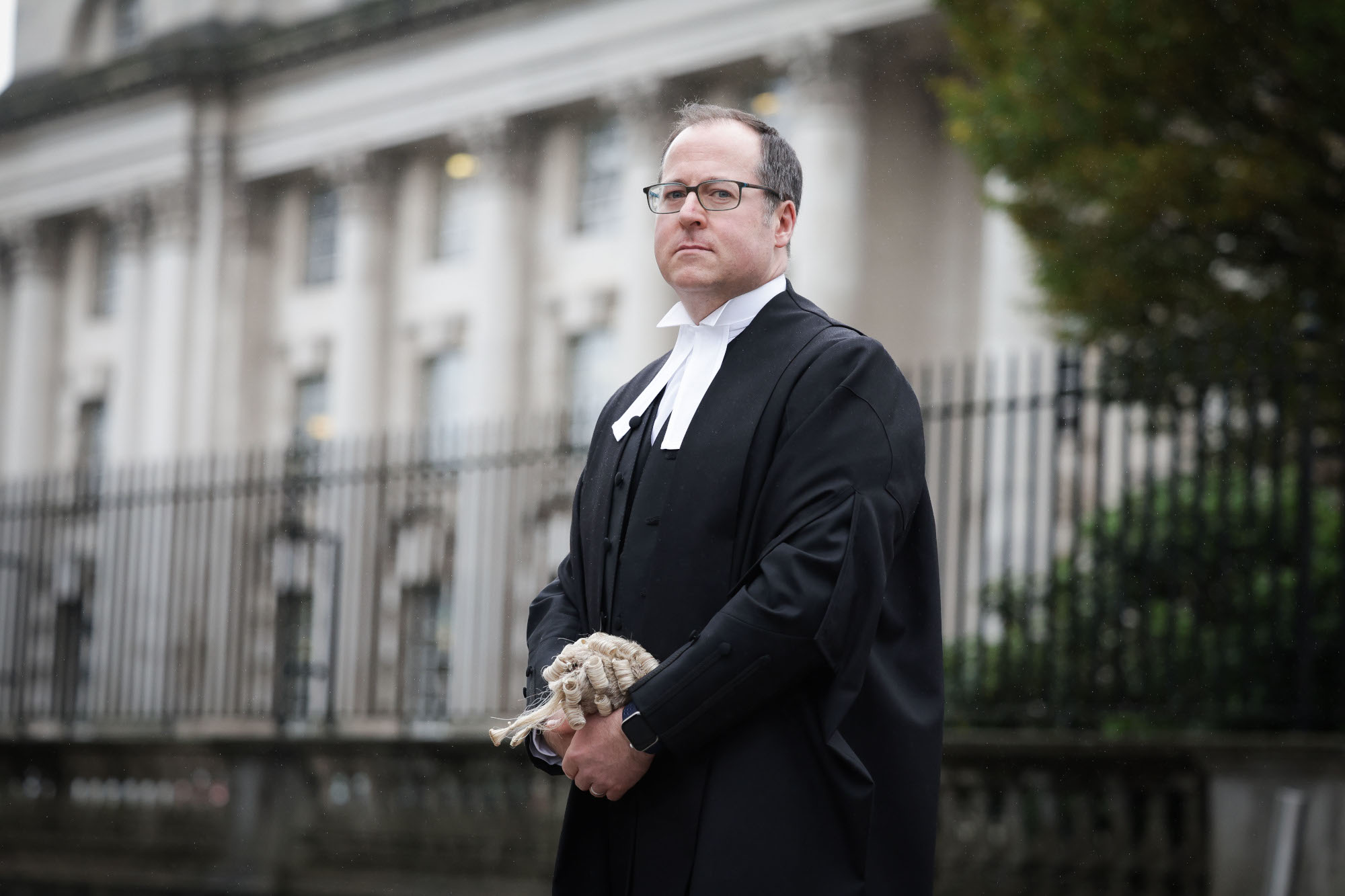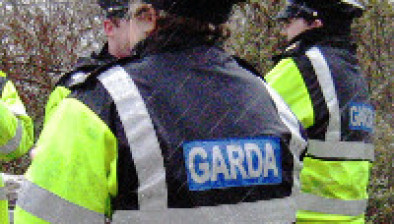Donal Lunny KC: Publish review of Northern Ireland’s legal aid system immediately

Pictured: Donal Lunny KC, chair of the Bar of Northern Ireland.
Barristers appearing in the most serious criminal cases in Northern Ireland are effectively being asked to do twice the work for half the pay they were getting two decades ago, the chairperson of the Bar of Northern Ireland has told Irish Legal News.
Donal Lunny KC, who took up office in September, has challenged justice minister Naomi Long to immediately publish the findings of a recent review headed by Judge Tom Burgess, which was completed in August but has not been made public “for reasons that are unfathomable”.
Speaking to ILN in the Bar Library just after more than 100 barristers staged a rally outside the Royal Courts of Justice in Belfast, Mr Lunny said the criminal legal aid system is “in crisis” and the impact was being felt most acutely in the Crown Court.
In addition to a one-day withdrawal of services across all courts yesterday, criminal barristers began on Friday to refuse instructions in all Category A cases in the Crown Court, which include trials for murder and serious sexual offences.
“The criminal legal aid rates for those cases were introduced in 2005 and haven’t been increased in the almost 20 years since then, and yet the complexity of the cases has grown incredibly, and the volume of work that’s required to be done in respect of those cases has grown over the 20 years,” Mr Lunny said.
“We’re now in a situation where the criminal bar in the Crown Court are essentially being asked to do twice the work that they were being asked to do in 2005 for half the pay because of the effects of inflation.”
The appointment of Judge Burgess to oversee an independent review of the criminal legal aid system followed a one-day withdrawal of services by barristers less than a year ago, motivated by lengthy delays in payments to barristers.
However, unlike in England and Wales, where a barristers’ strike led to a similar review by Sir Christopher Bellamy KC which was published by the Ministry of Justice shortly after receipt, both the Bar and the Law Society are still waiting to see the contents of a report submitted in August.
The Department of Justice insisted last month that any industrial action by barristers would be “premature”.
“I would say it’s entirely the opposite of being premature,” Mr Lunny countered. “It has been coming for a long time. It has been avoidable.
“They appear not to have done enough to avoid it. They haven’t treated the problem with the urgency that it requires. To describe it as premature is simply wrong.”
He is also anxious to stress that the Bar is very conscious of the potential impact of industrial action on victims, following an intervention yesterday by Geraldine Hanna, the commissioner for victims designate.
Ms Hanna told the Belfast Telegraph that lawyers were within their right to strike but there had been “insufficient coordination and communication to mitigate the foreseen impacts on victims and witnesses”.
Mr Lunny said: “We value the victim of crime commissioner’s role, because we realise her importance and the importance of the people she represents.
“Right at the outset, when we announced this action several weeks ago, we made sure to communicate with her, with Women’s Aid, with Victim Support, with the Lady Chief Justice, with the DPP, with all affected stakeholders — because we understand there’s an impact.
“But the much greater impact that everybody should be concerned about is the impact that the underfunding of the system is going to have.
“It’s not only deterring barristers from doing that type of work. If you in effect end up with a system where people aren’t adequately rewarded to do Crown Court cases, you will get people doing Crown Court cases who lack the necessary experience and expertise, and that’s very definitely not in the interest of victims.
“It’s adverse to their interest. It massively increases the risk of guilty people being acquitted or innocent people being convicted.”
For the boycott of serious criminal cases to end — or further withdrawals of services to be averted — the Department of Justice needs to take action “immediately”, Mr Lunny said.
He stressed: “It’s been obvious to the Department that this was coming. We have warned them repeatedly that it’s coming. We warned them particularly when they told us they weren’t going to publish the Burgess report, that that would precipitate the sort of action that’s now been taken.
“What they need to do is publish immediately the Burgess report to the world at large, provide a fair and reasonable interim uplift of fees, as they have done in other jurisdictions, and then engage in a timetabled programme for the reform of the criminal legal aid system.
“We have engaged in great detail about what we think that involves, as have the Law Society, in the Burgess review. They know what those issues are, and they know what the solutions are.”











